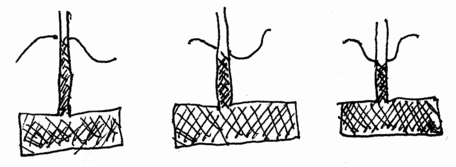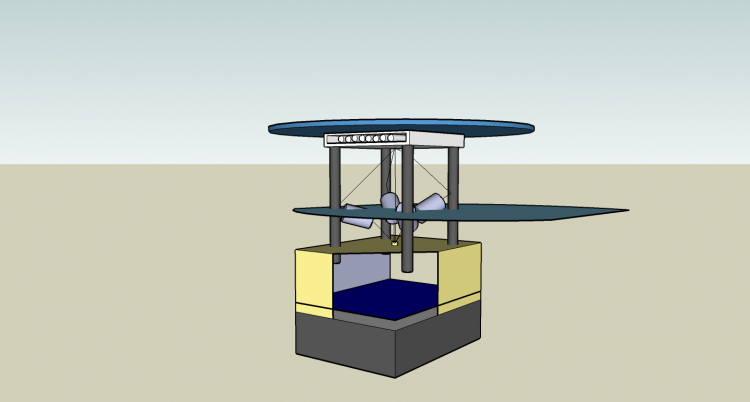User:Joep/PillarStead
PillarStead
This is a little idea to solve a problem that needs explanation first. The reason for having a spar design is that the waves don't have much influence. From the book:
The boat has a big surface area, meaning that if the sealevel rises (a waves passes by) the boat will immediately displace a lot more water and move up to get to a new equilibrium. If the surface area is small though, the extra displaced water is very small, so the force upwards and sidewards is smaller, resulting in a slower movements (and happier Seasteaders).
So the big advantage of a small surface area is that the Seastead will bob less. We'd want a spar that is as small as possible. The spar should be just strong enough to keep everything up (and a big safety factor of course). There is a disadvantage as well though. If you add a little extra weight to a boat, it will sink very little because the whole area of the boat is used to compensate for that. But if you have a tiny spar that is only 1 m^2, every 1000 kg extra weight is 10 cm down. People will probably notice when for example cargo is loaded and a precise balasting system needs to be implemented.
My idea is to make a trade-off between a boat and a very small spar. It consists of a few pillars, probably made of steel, just strong enough but not important for bouyancy. Below sea level it looks familiar, ballast at the bottom, and an air chamber for bouyancy. As the spars are hardly bouyant the whole structure would very easy go up and down. Therefore, there are extra dumbbells, connected to the bottom and the spars with adjustable cables. These are at sealevel so they have a big surface. As the dumbbells pull the whole Seastead up in the middle (and pull it a bit sideways as well), Seastead will go up and down a bit, but it won't tilt.
Now the trick is to get the dumbbels put at the best position, which depends heavily on the current wavelength. The best option is to get them in a position so that half of them are at the bottom and the other half at the top of a wave at all times. If there are hundreds of dumbbells keeping a huge Seastead up, they will automatically.
Also notice the very lightweight platform, it's made of closed PVC tubes with foam in between. Even getting the tubes aligned is still too hard for me in SketchUp :)


